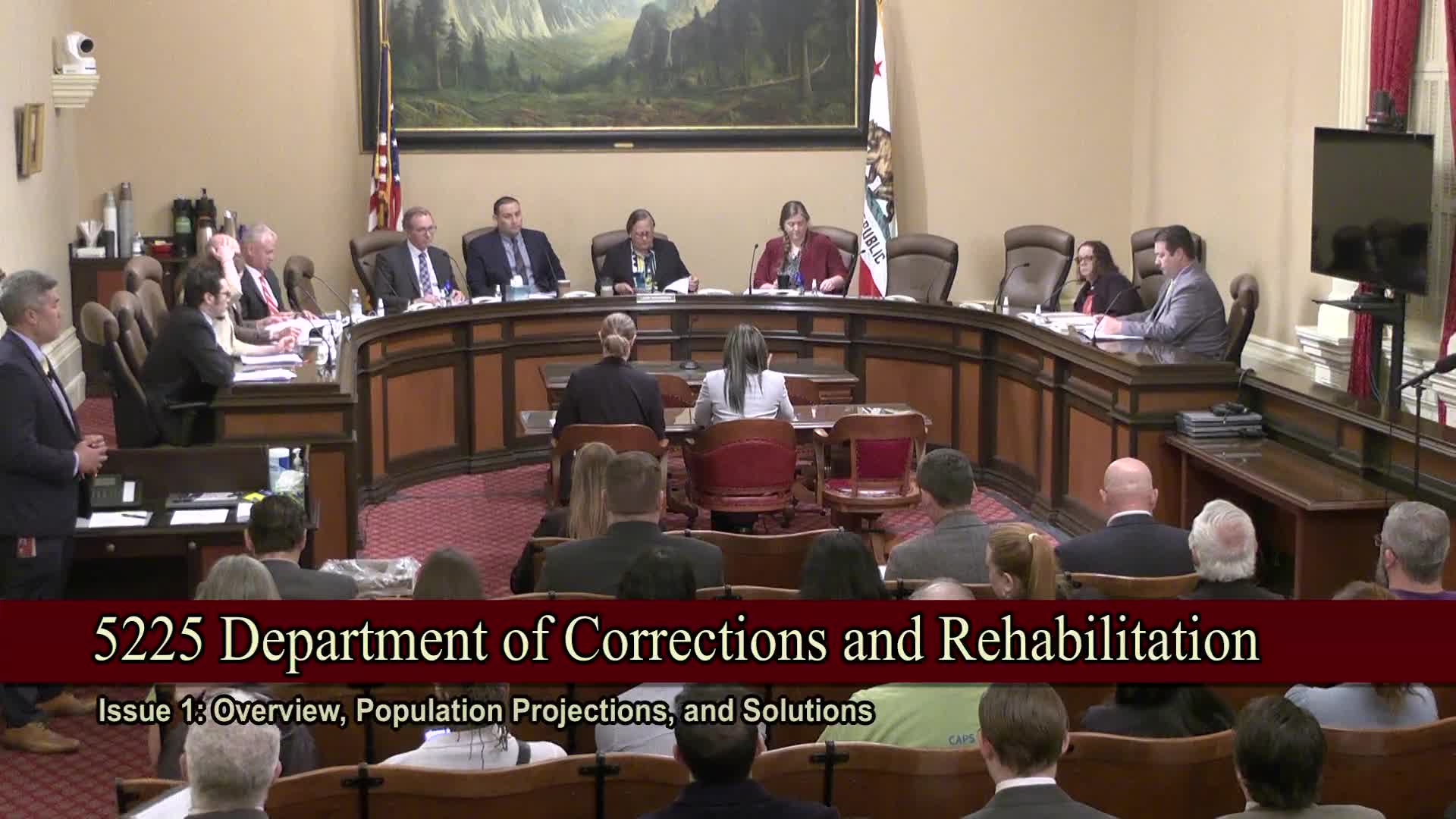Article not found
This article is no longer available. But don't worry—we've gathered other articles that discuss the same topic.
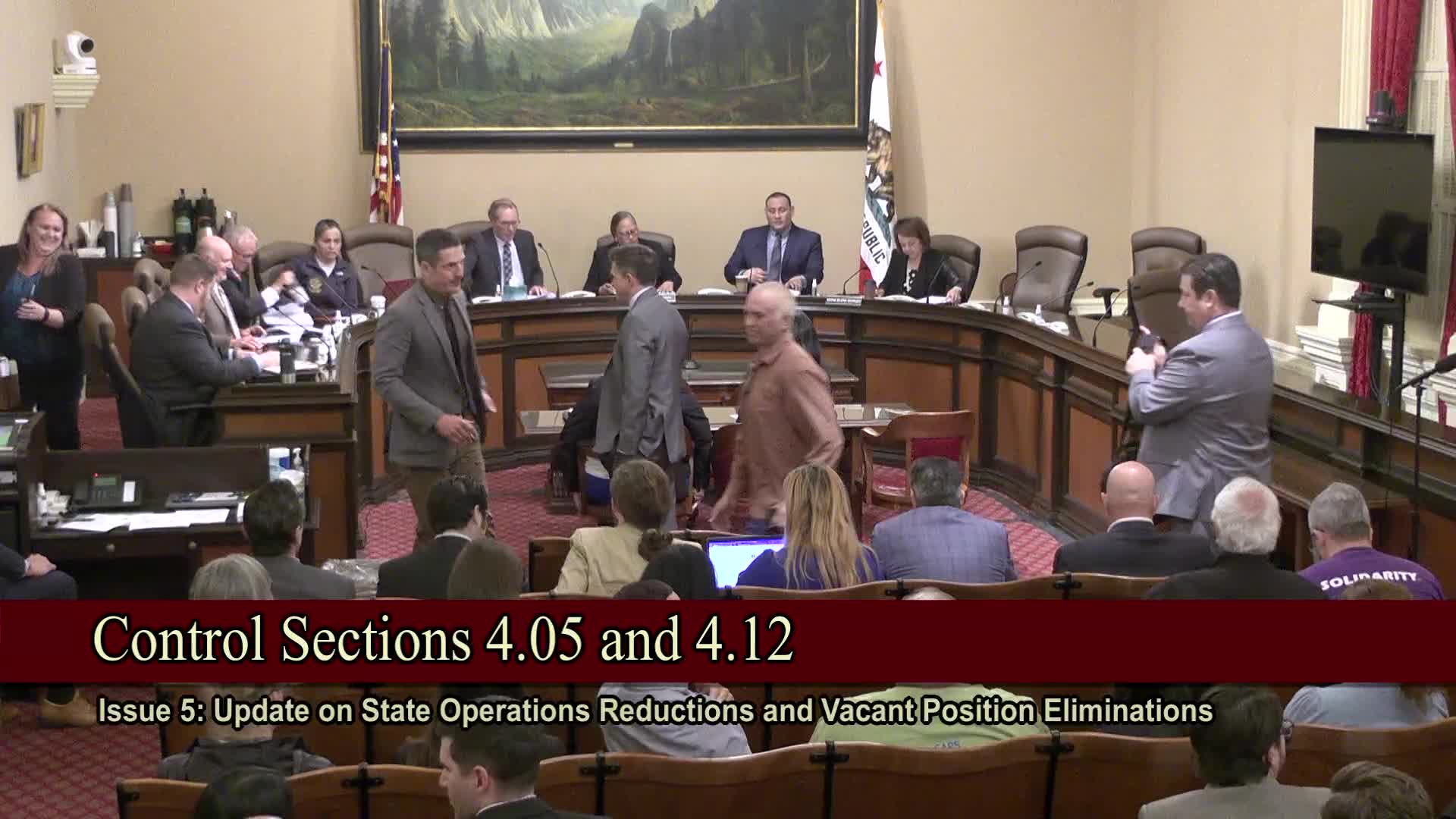
Budget control sections would eliminate thousands of vacant positions and allow administration authority to suspend scheduled pay increases; lawmakers and labor
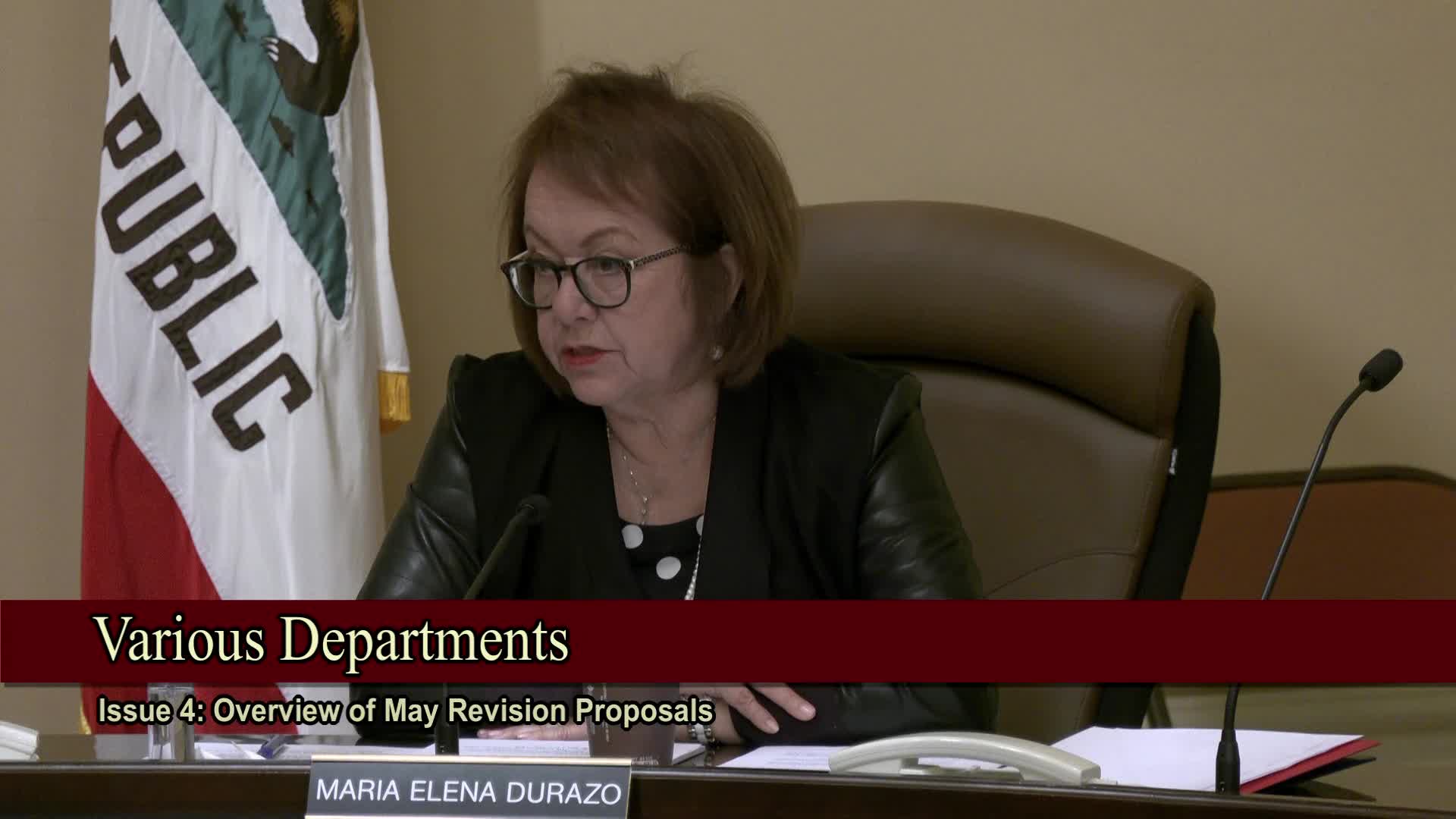
Lawmakers and advocates push back on proposed $400 million loan from labor fund; CWOP supporters urge protection
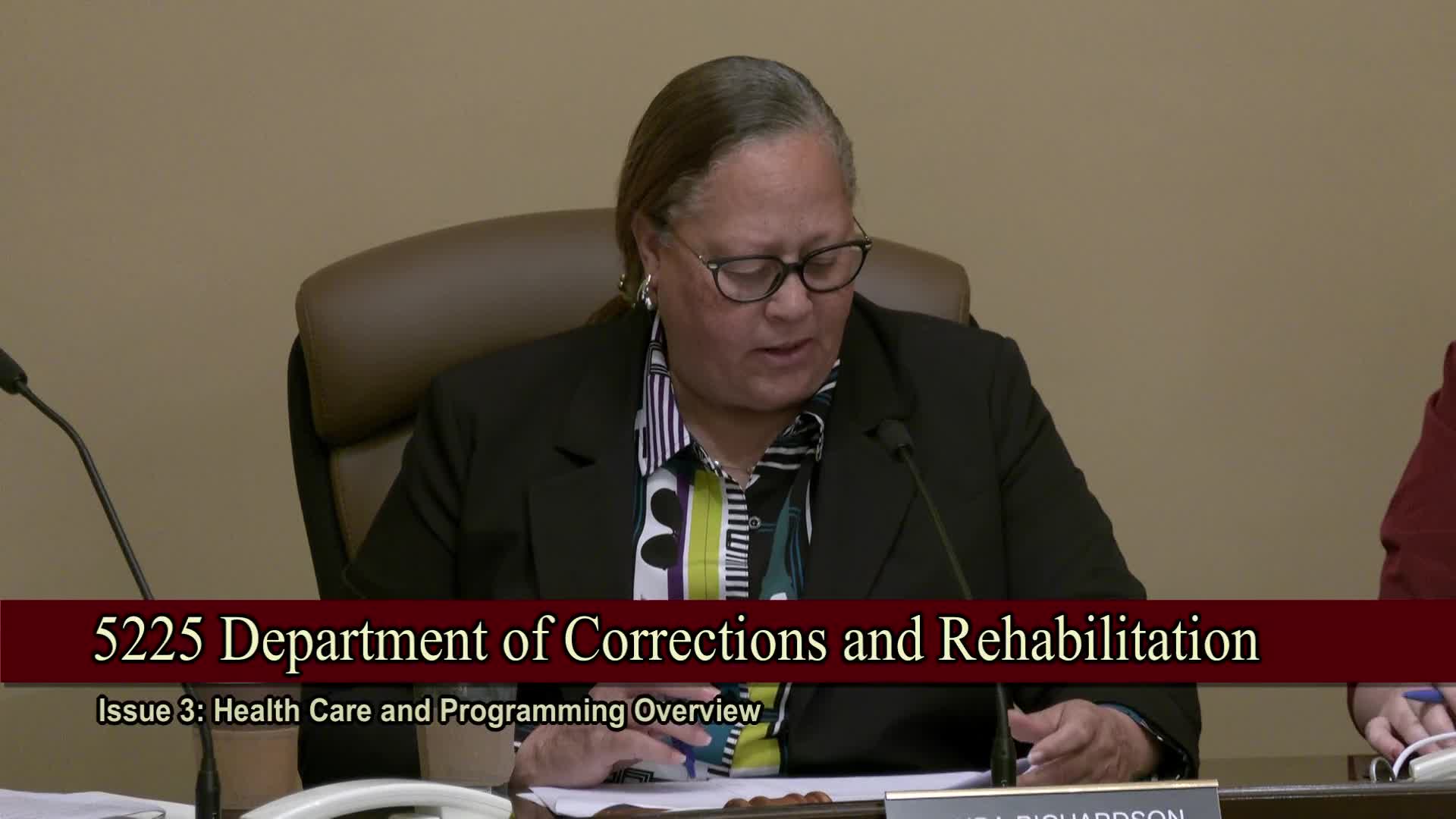
CDCR seeks CalAIM reimbursements and health‑care changes; LAO flags contract medical shortfall and staffing requests
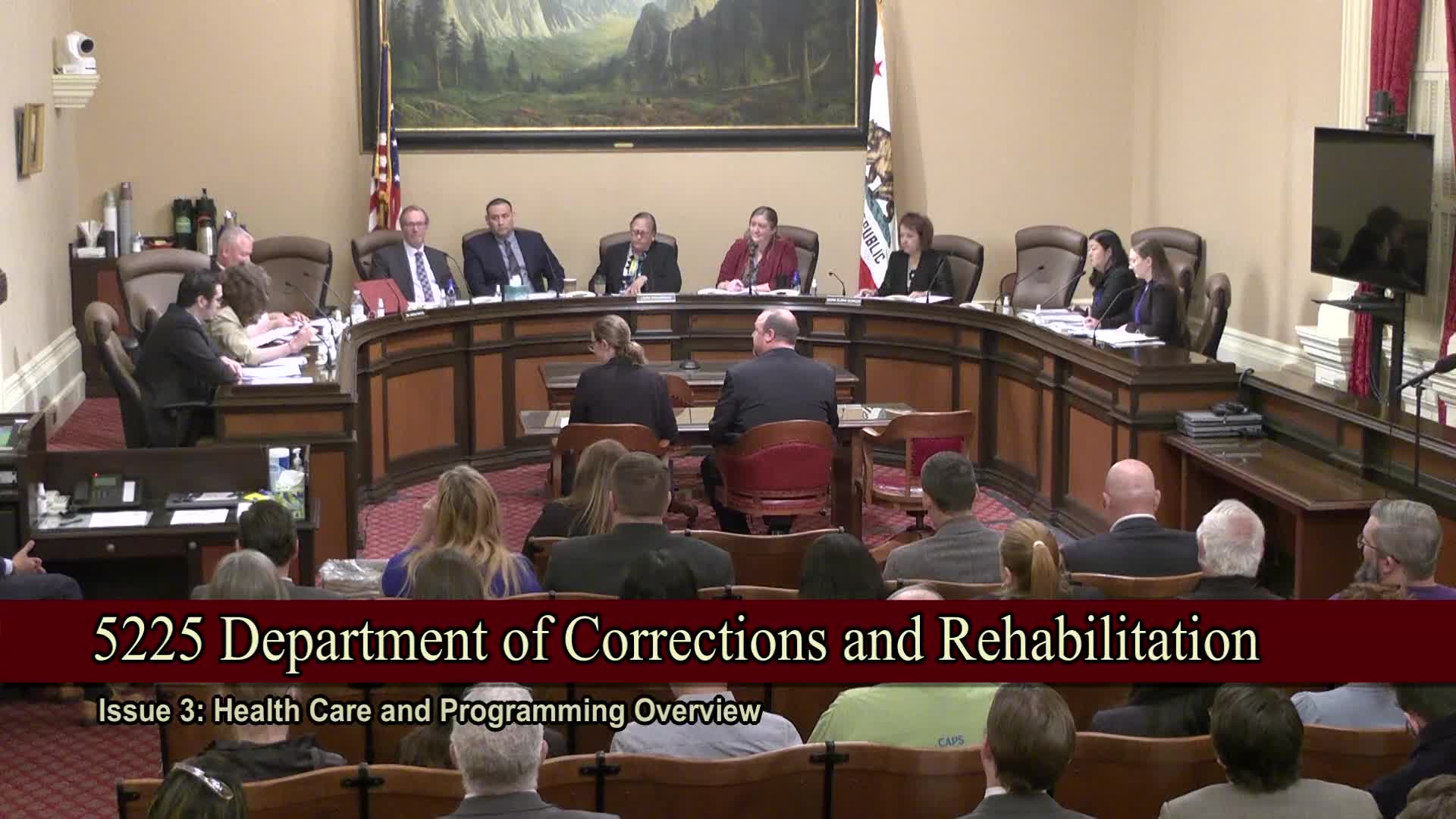
San Quentin rehabilitation funding and programs draw LAO scrutiny amid May revise cuts
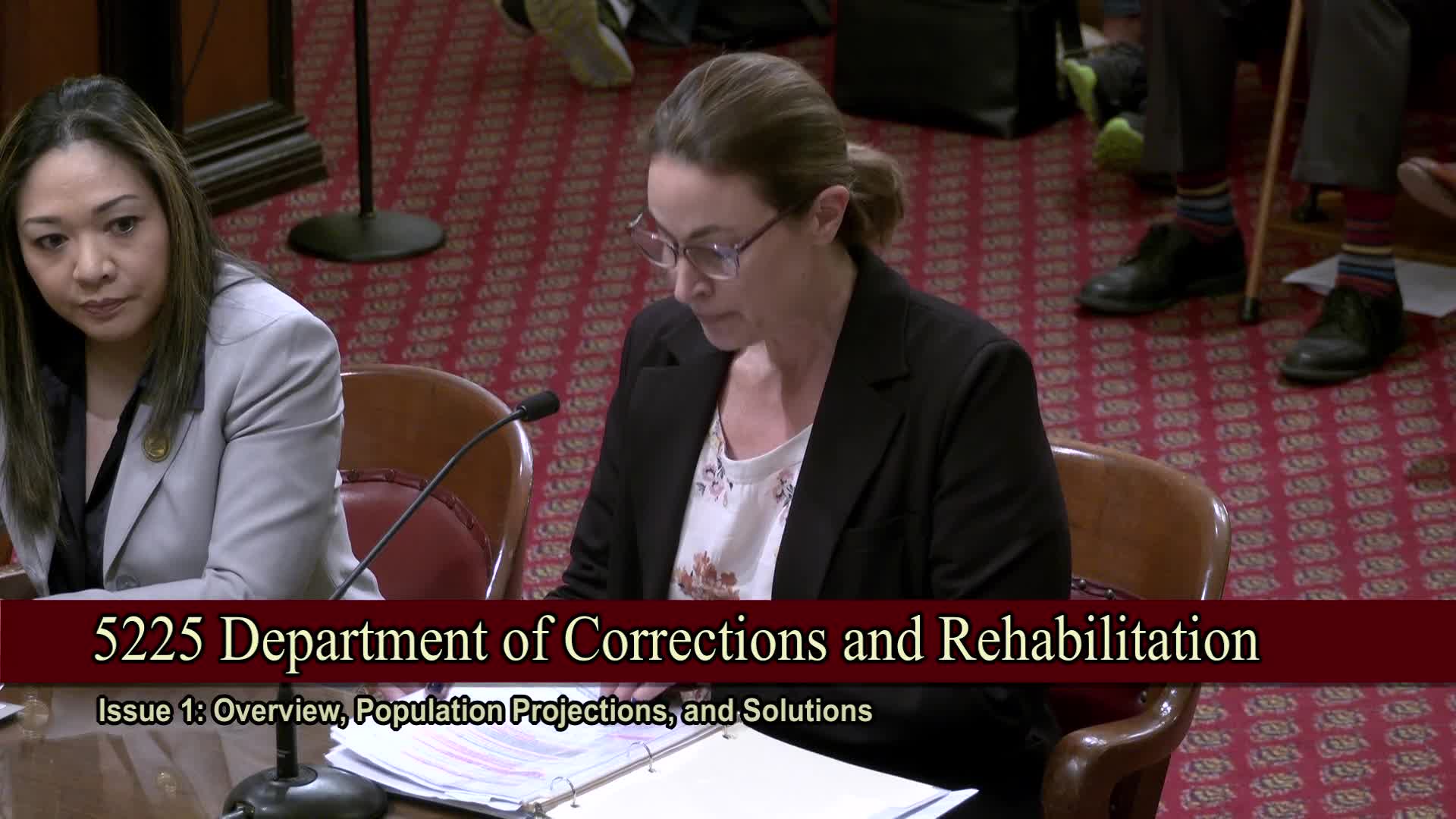
Committee presses CDCR on prison‑closure process after May revise withdraws radio and ADA funding
